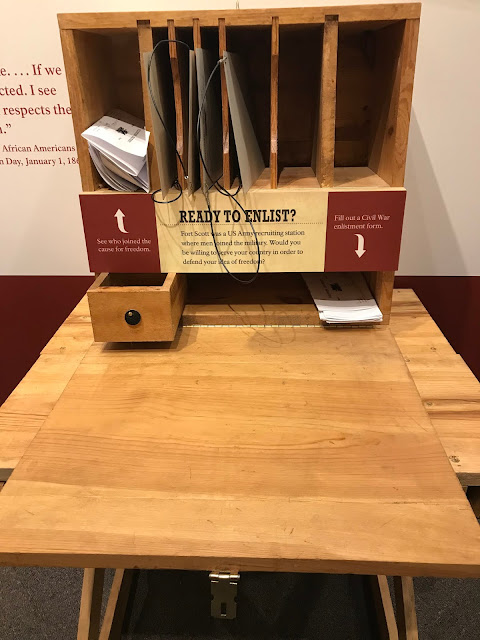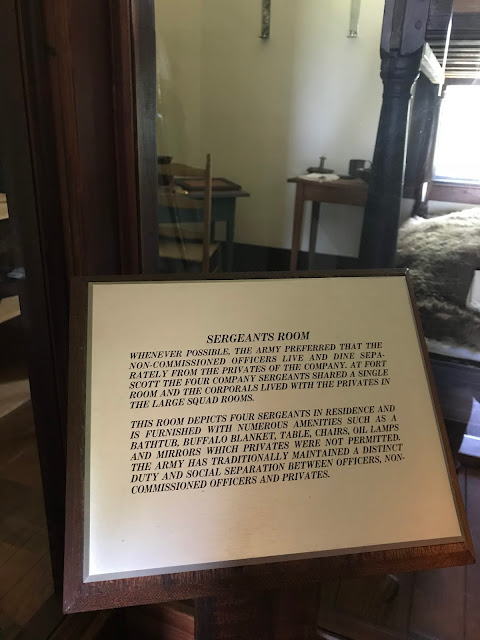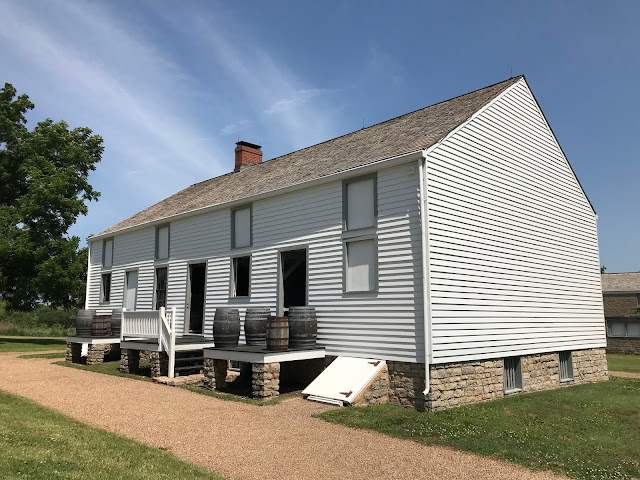We left Country Club, Missouri (St. Joe) Sunday after church with Scott's brother Mark. Packed up the rig and set out sites for Fort Scott National Historic Site in Fort Scott, Kansas. The story of Fort Scott is essentially that of "American Growing Up". The fort began in 1842 and for a fort being built in Kansas, it was a small area of the country. Most people at that timed lived east of the Mississippi.
Many American Indian tribes came to the Fort Scott area around 1830 and were promised land that no white settlements would be near as a permanent Indiana frontier. The soldiers at Fort Scott kept the peace between white settlers and American Indian tribes (Trail of Tears time).
By the 1840s, settlers flocked westward to Oregon and California. Conflicts arose along the Santa Fe and Oregon trails. Dragoons from Fort Scott were called upon to keep the peace. They also rode escort on the Santa Fe Trail in 1843. 1844-1845 the dragoons parleyed with Indian Tribes that threatened settlers along the Oregon Trail. 1846-48, they were apart of the Mexican-American War. And some dragoons where involved helping in New Mexico and California and other fought at Buena Vista and others in Winfield Scott's overland march to Mexico City.
Soon enough, the army abandoned Fort Scott by 1853. But slavery issues brought them back. In 1854 the Kansas-Nebraska Act was created opening those territories for settlement and each territory could determine whether slaves could be brought there. Kansas was a controversial state in regard to this issue and conflict ensued...thus Kansas was nicknamed "Bleeding Kansas" in this era where violence, destruction and psychological warfare prevailed.
After the Civil War, Fort Scott was a school for black men including George Washington Carver, which gave them a great beginning to a new life.
Here are photos of the buildings:
Visitors Center (aka Hospital). It contained not only a bookstore but also a exhibit area upstairs of what the hospital would have looked like back in the day.
 |
| Multiple people slept on this bed |
 |
| Prisoner Quarters |
 |
| Guard Quarters |
Dragoon Stables
Infantry Barracks contained a huge exhibit along with a great movie about Fort Scott upstairs.
Dragoon Barracks consisted of two areas. The lower area was the dining room while the upstairs was the sleeping quarters.
 |
| Original nails and tongue and groove steps |
 |
| Office Area |
Quartermaster Storehouse
Bake House
Restrooms
While I was there I got to see two soldiers in uniform of the day and they showed spectators how to load and fire their rifles.
Fort Scott is a great place to visit. Bring this kids. They will enjoy the fun things to do including a junior ranger program.





































































Very interesting. I’ve never heard of any of this.
ReplyDeleteMe, either. Glad you European trip is fabulous! You'll have to give me tips for our trip to England, Scotland, Ireland, Wales.
Delete